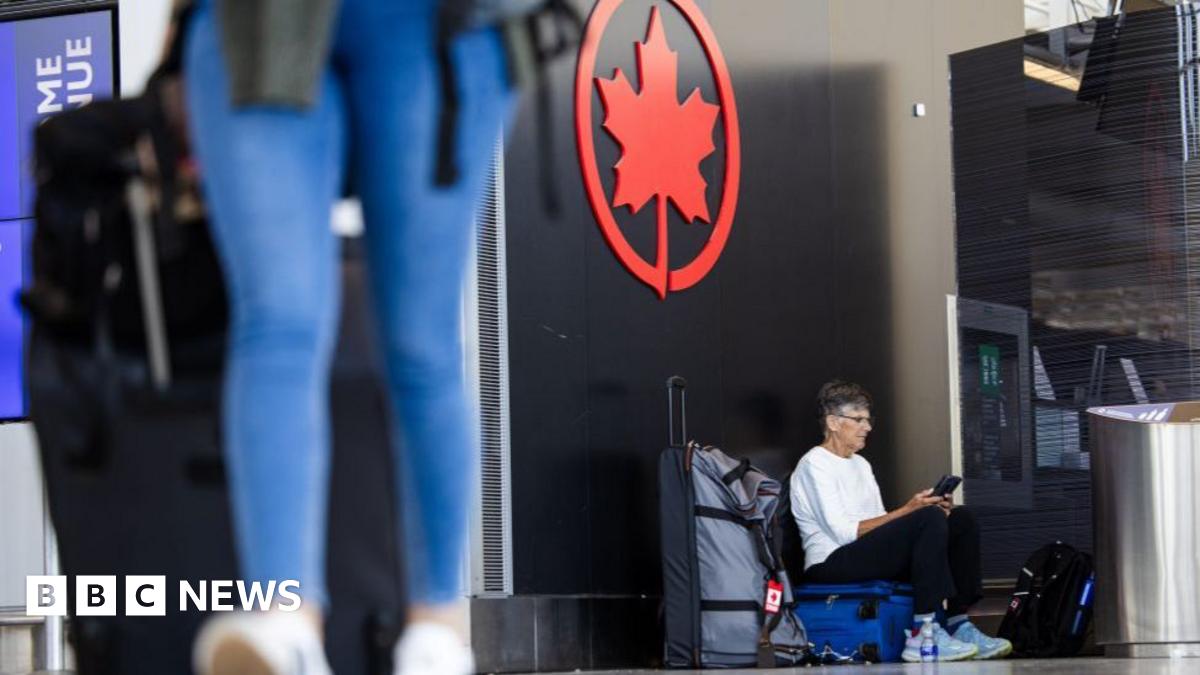The breakthrough came nine hours after talks began with the help of an approved mediator appointed by the government.
“Unpaid work is over,” said the Canadian Union of Public Employees (CUPE) in a statement early on Tuesday, calling the negotiations a “historic fight” for the industry.
The union also advised its members to “fully co-operate with resumption of operations”.
The dispute between Air Canada and the union had escalated when CUPE rejected an order to return to work issued by the Canadian Industrial Relations Board, which deemed the strike “unlawful” in a ruling on Monday.
Following news of a tentative deal, Air Canada said the first flights would restart on Tuesday evening, but it may take days to return to a full service because aircraft and crew are out of position.
It added that it would not comment on the terms of the agreed deal until it had been ratified.
In contract negotiations, Air Canada said it had offered flight attendants a 38% increase in total compensation over four years, with a 25% raise in the first year.
CUPE said the offer was “below inflation, below market value, below minimum wage” and would still leave flight attendants unpaid for some hours of work, including boarding and waiting at airports ahead of flights.
The union also rejected an order by the Canadian government to enter binding arbitration and return to work over the weekend, accusing it of “caving to corporate pressure”.
After the union’s refusal, Jobs Minister Patty Hajdu encouraged the two parties on Monday to resume talks and said her ministry will order a probe into “the allegations of unpaid work in the airline sector”.
The nearly four-day strike has impacted more than 500,000 passengers, Air Canada has said. The airline – Canada’s largest – operates around 700 flights daily, serving both domestic and international travellers.
